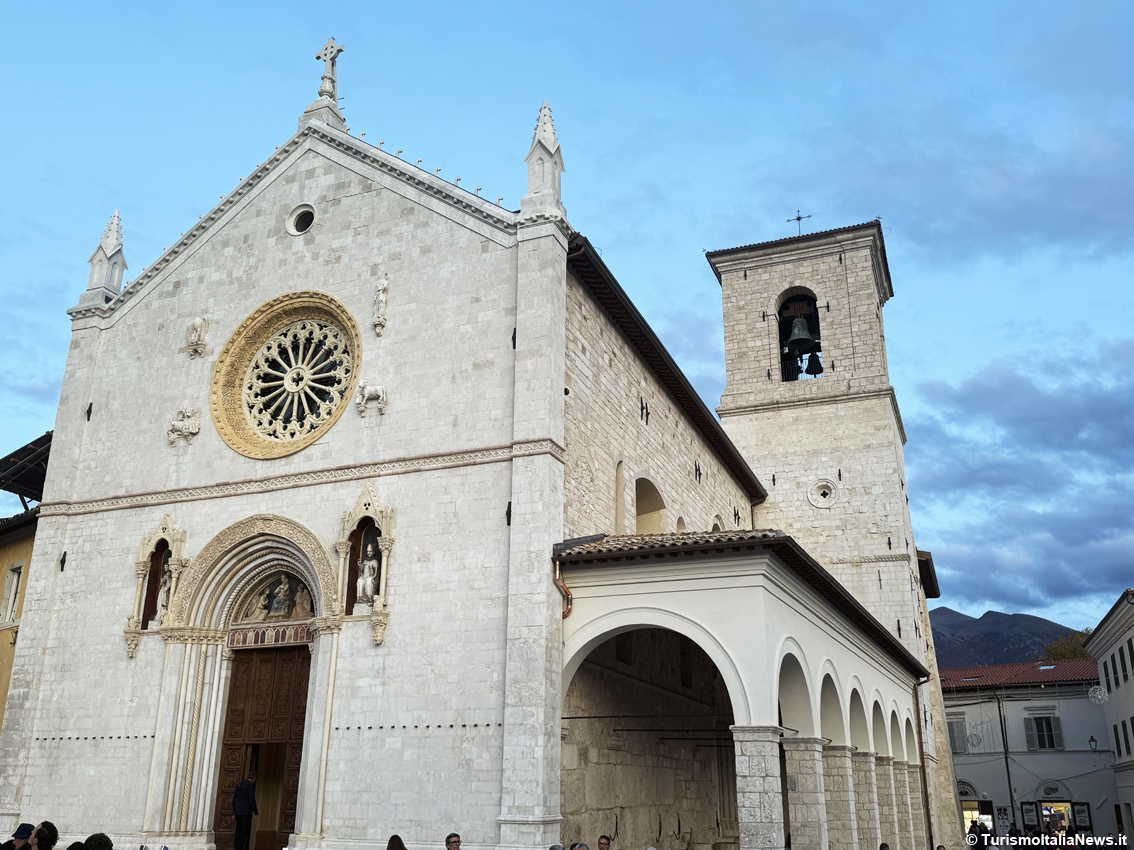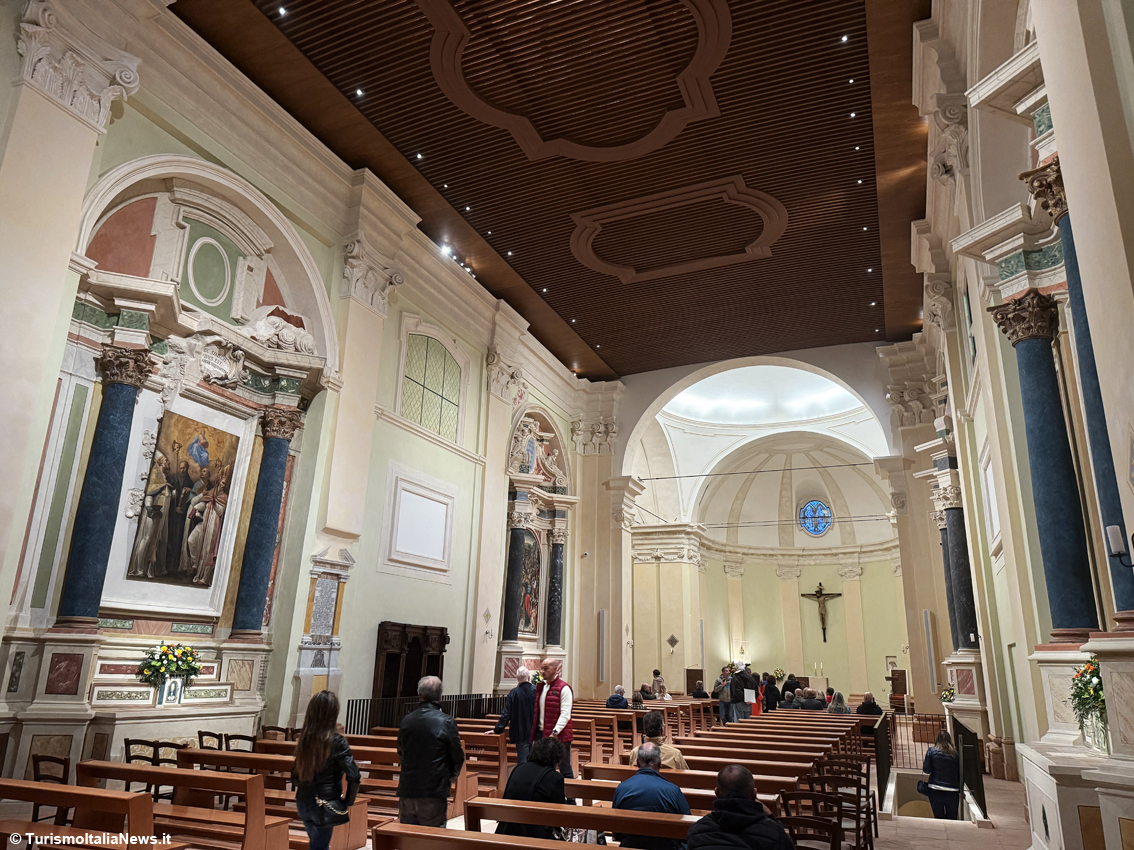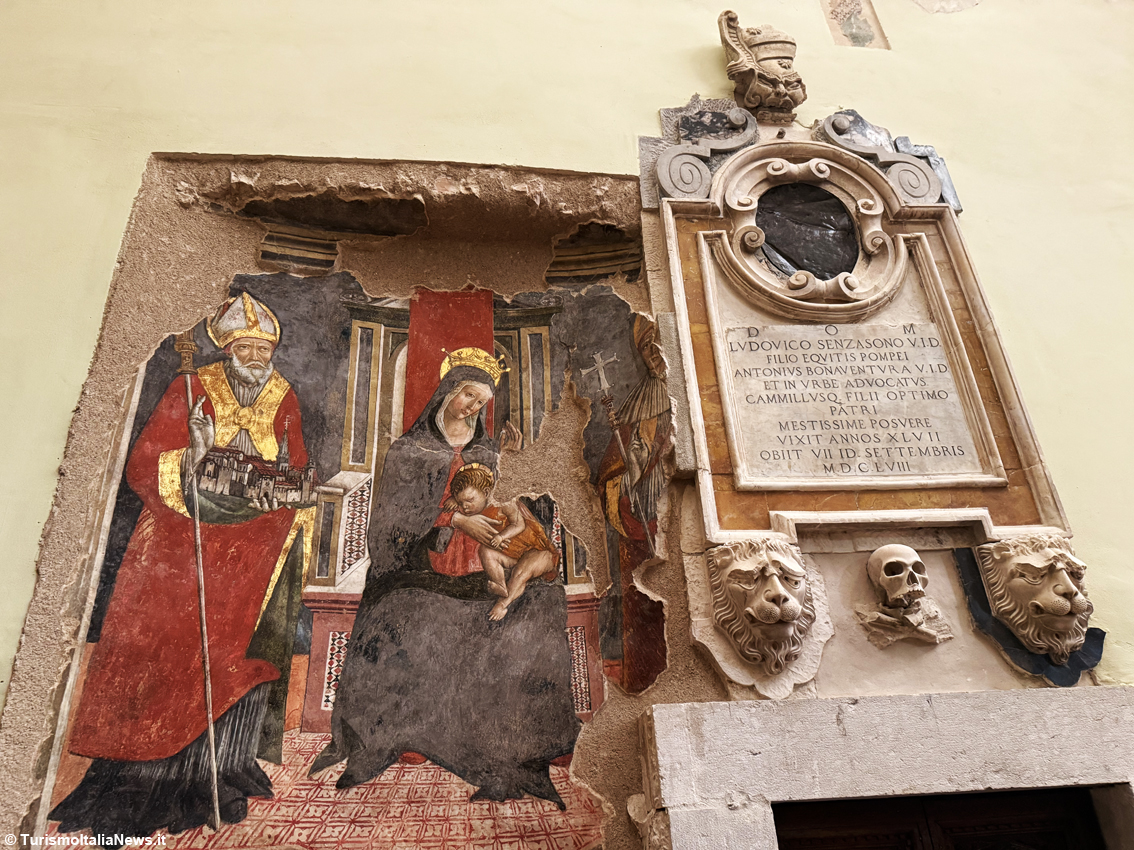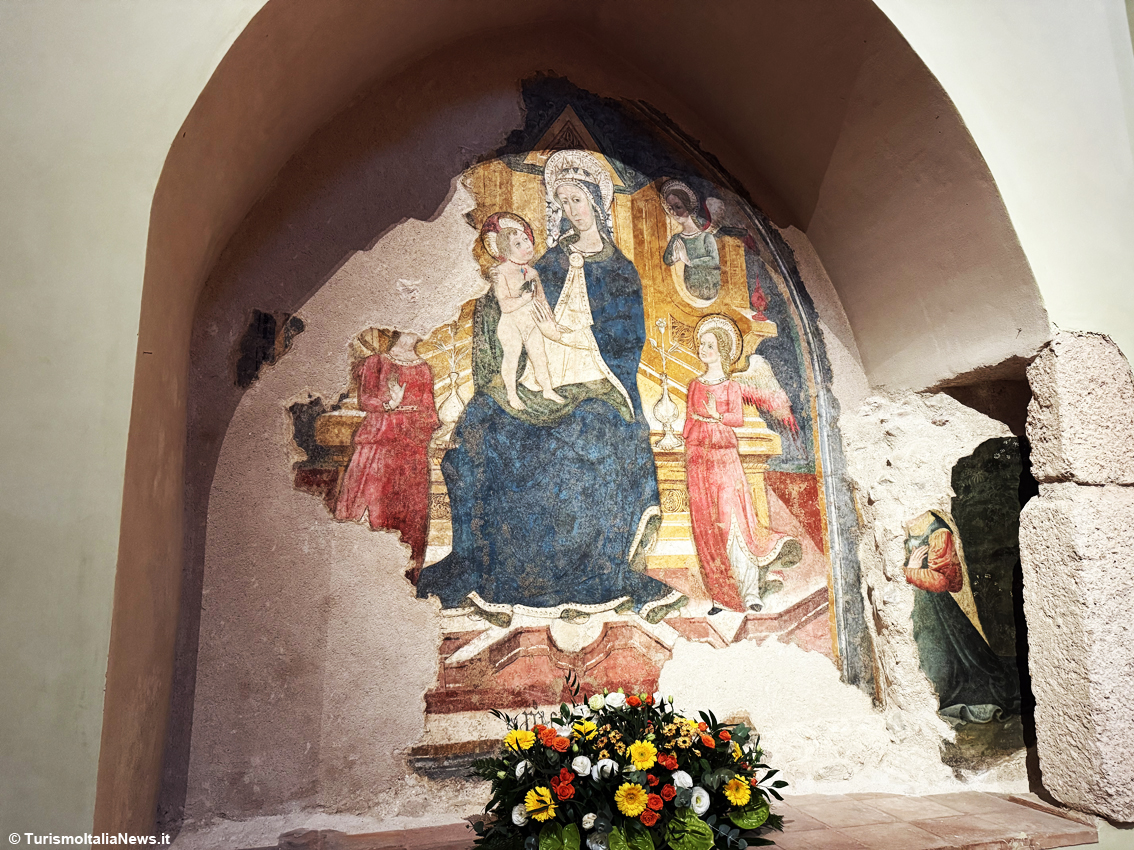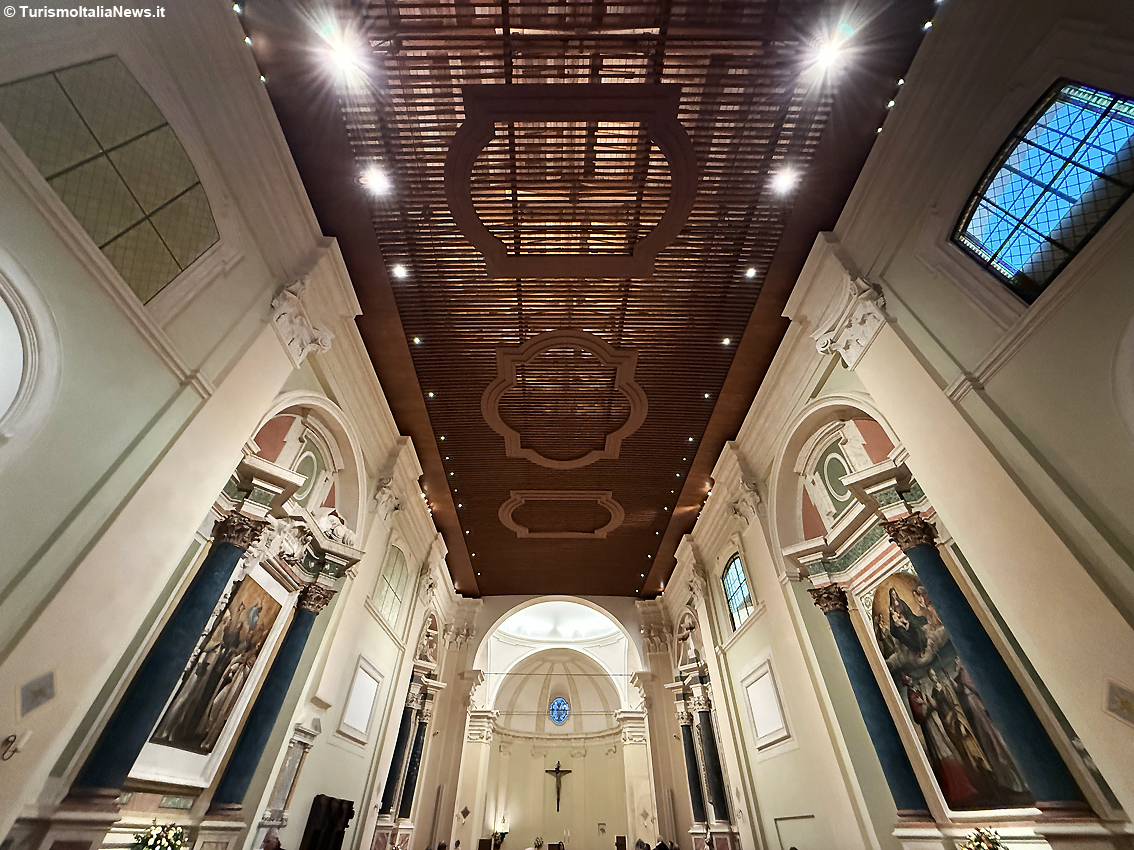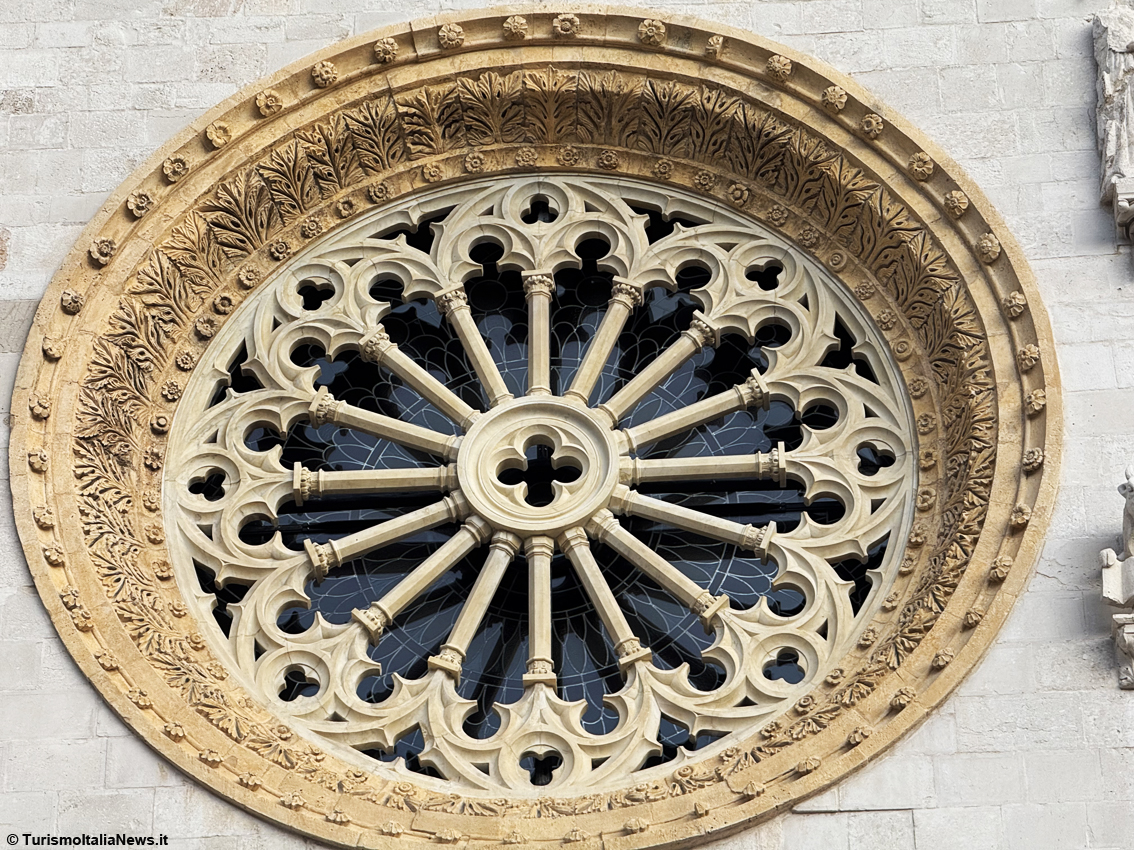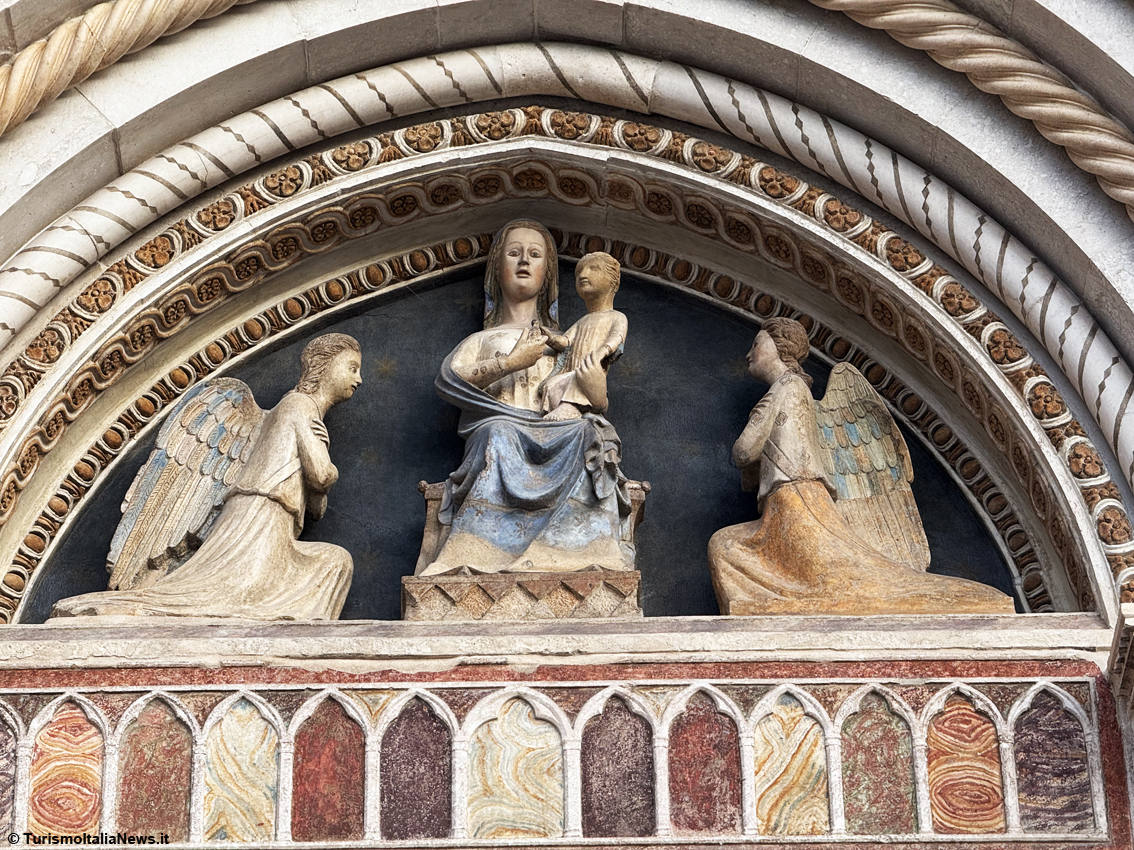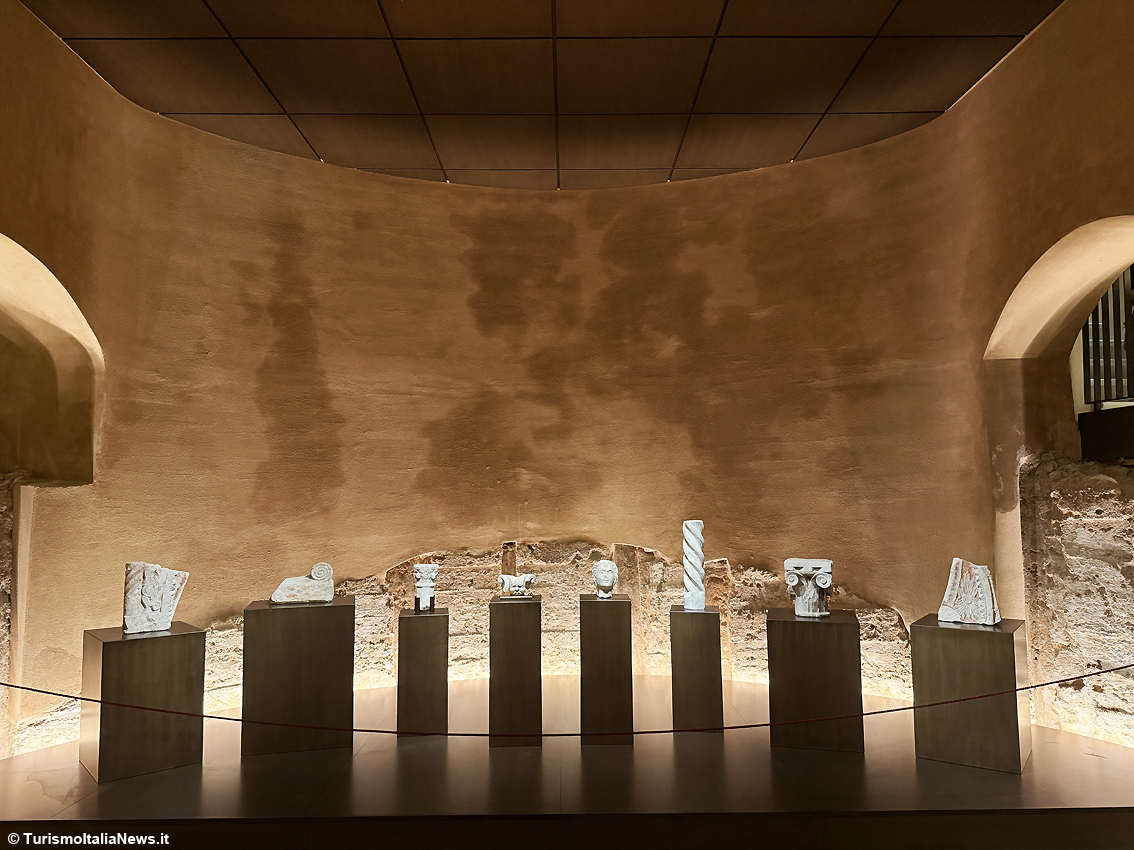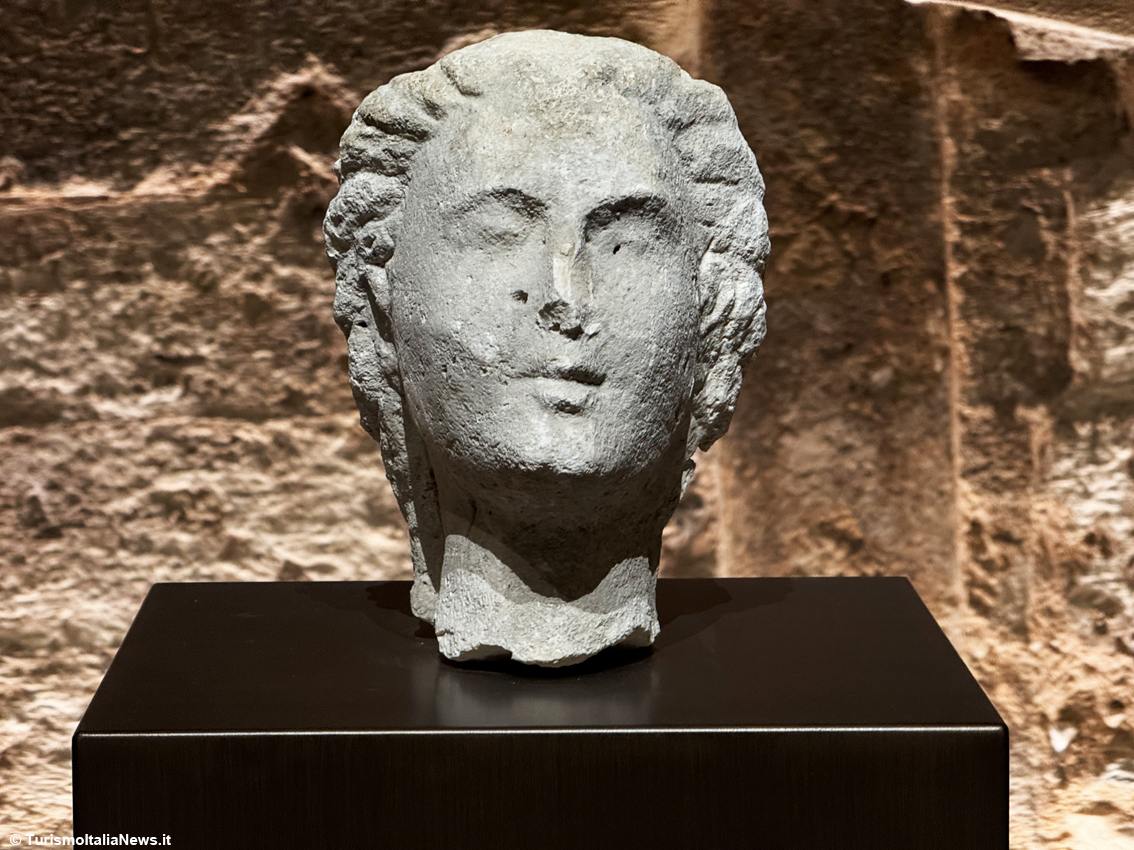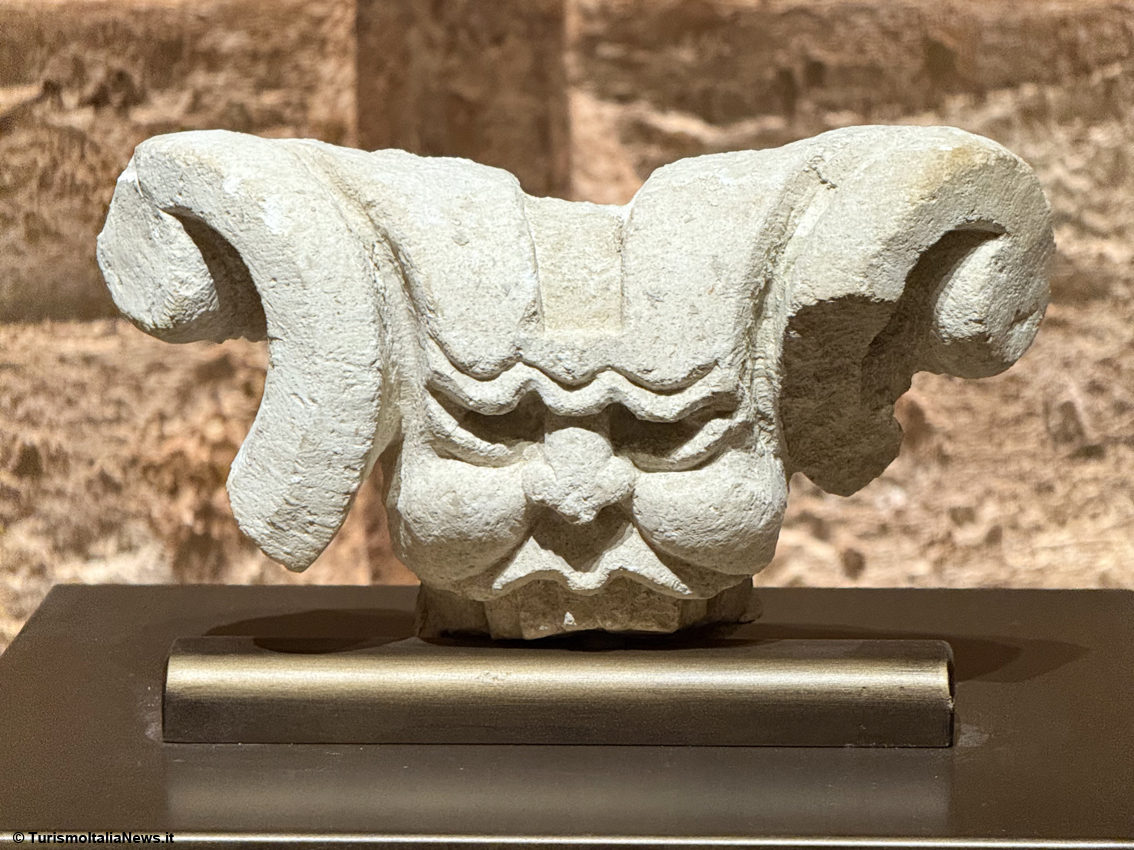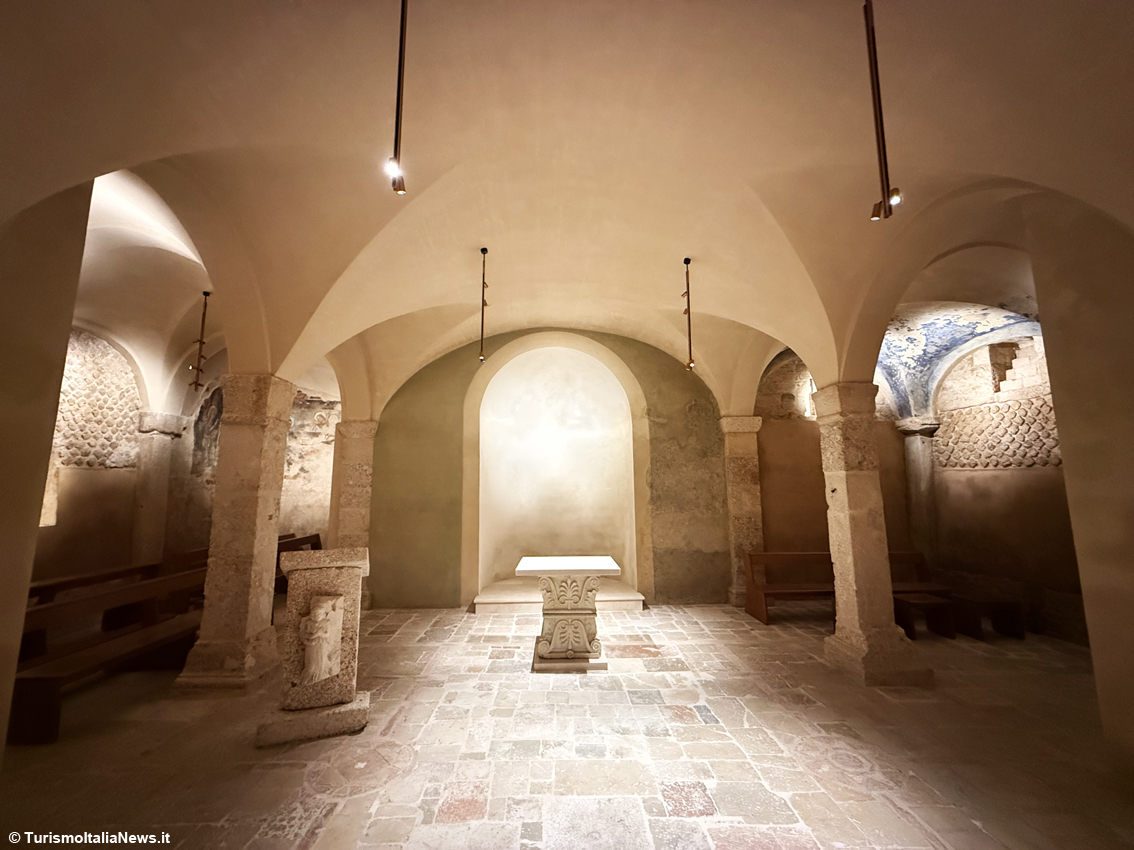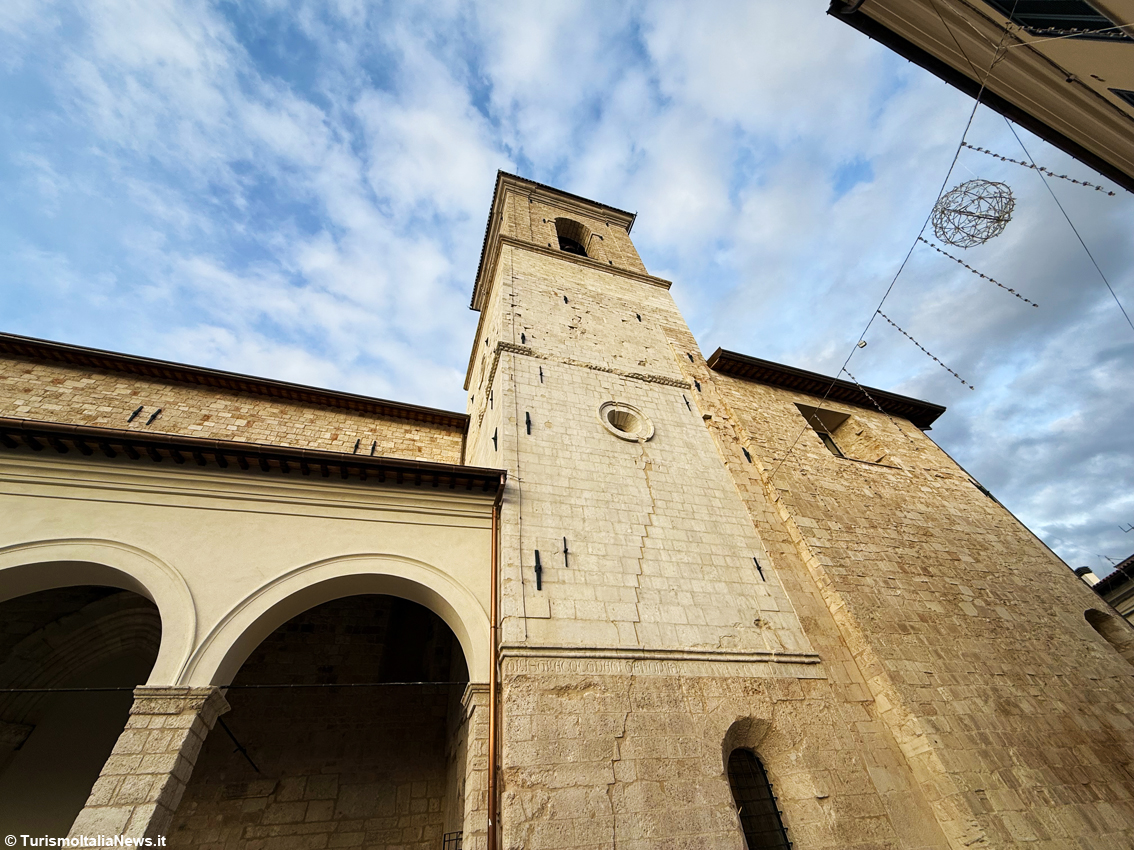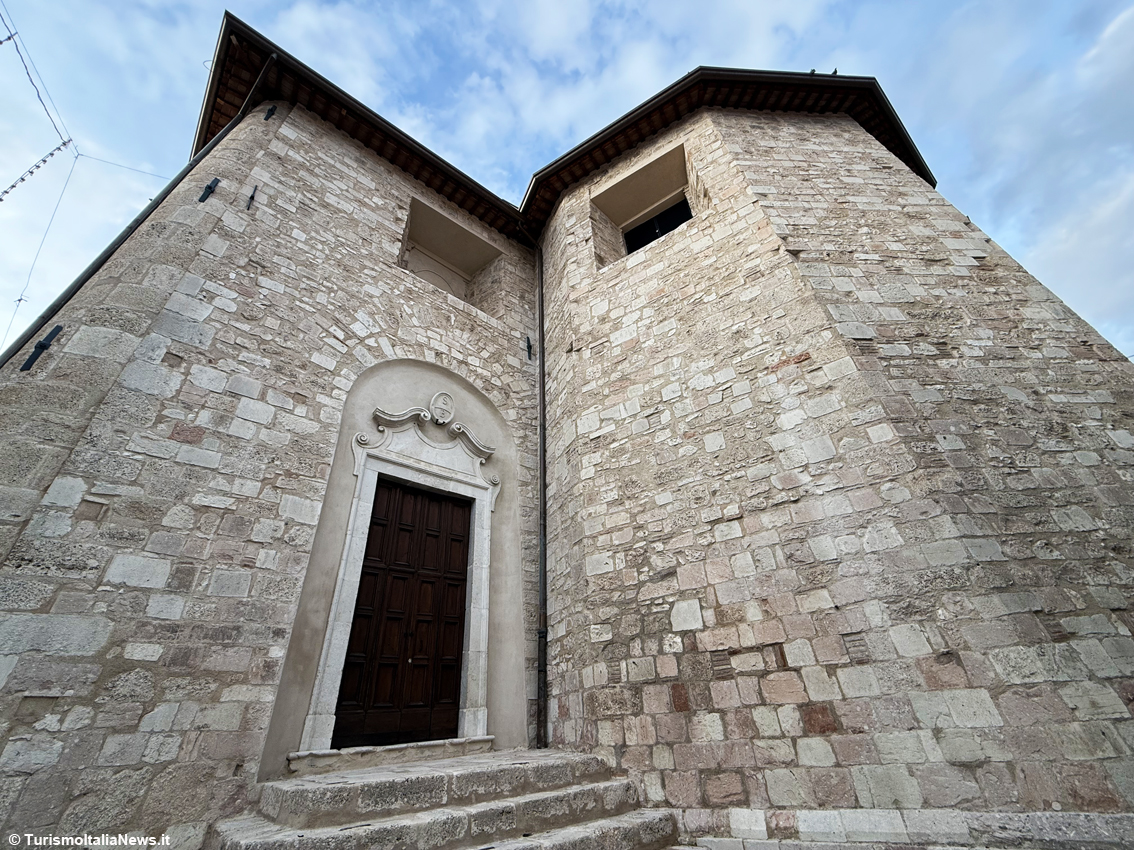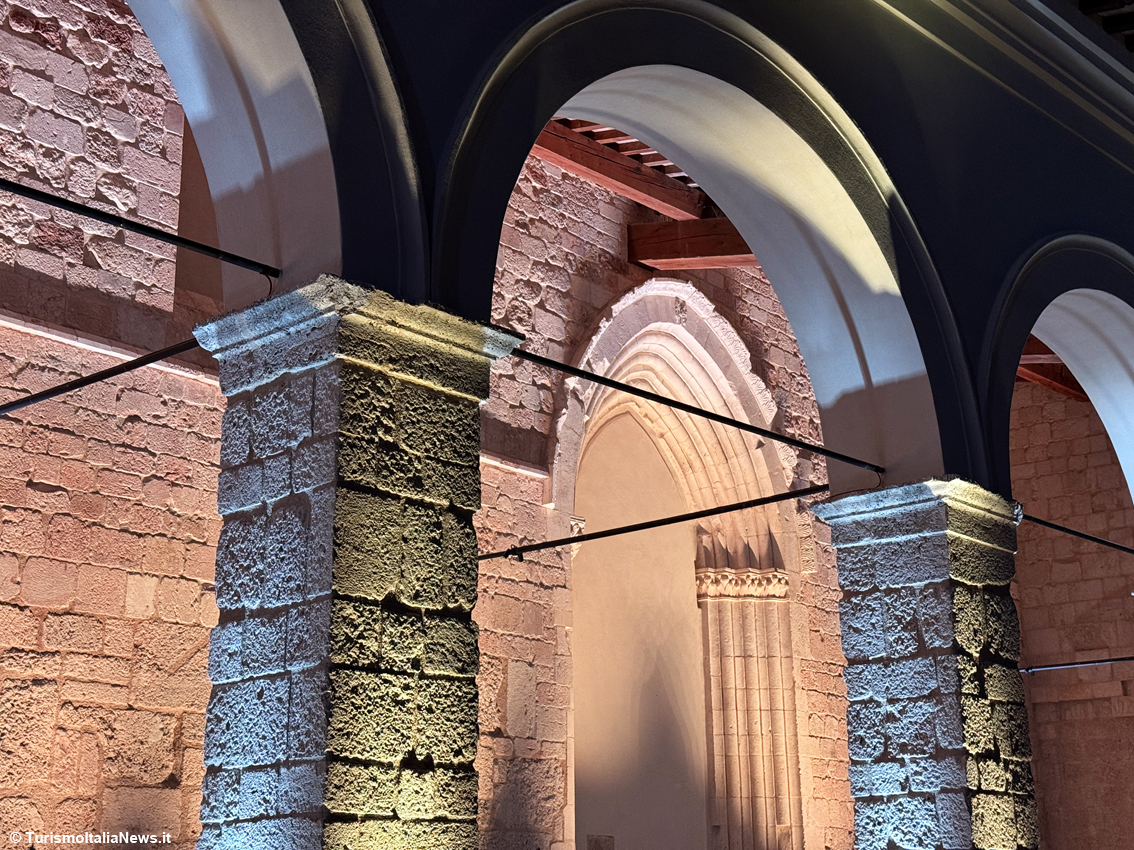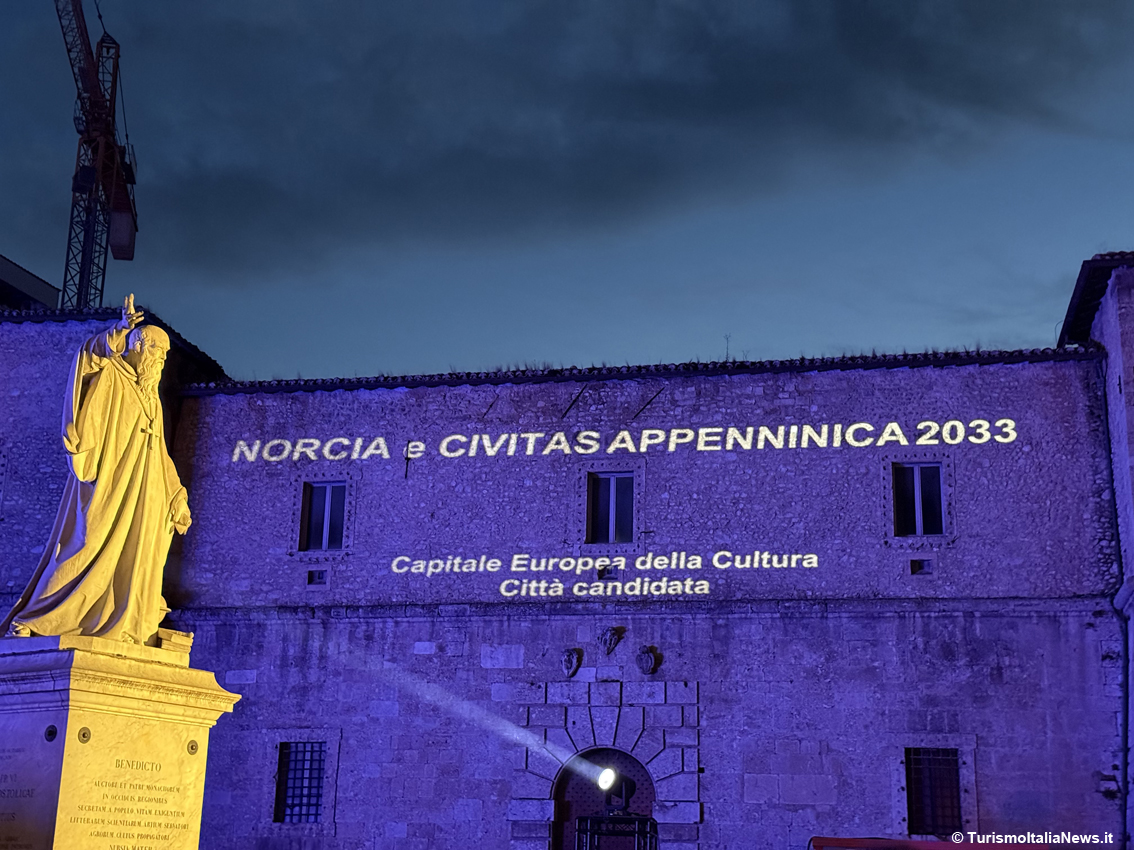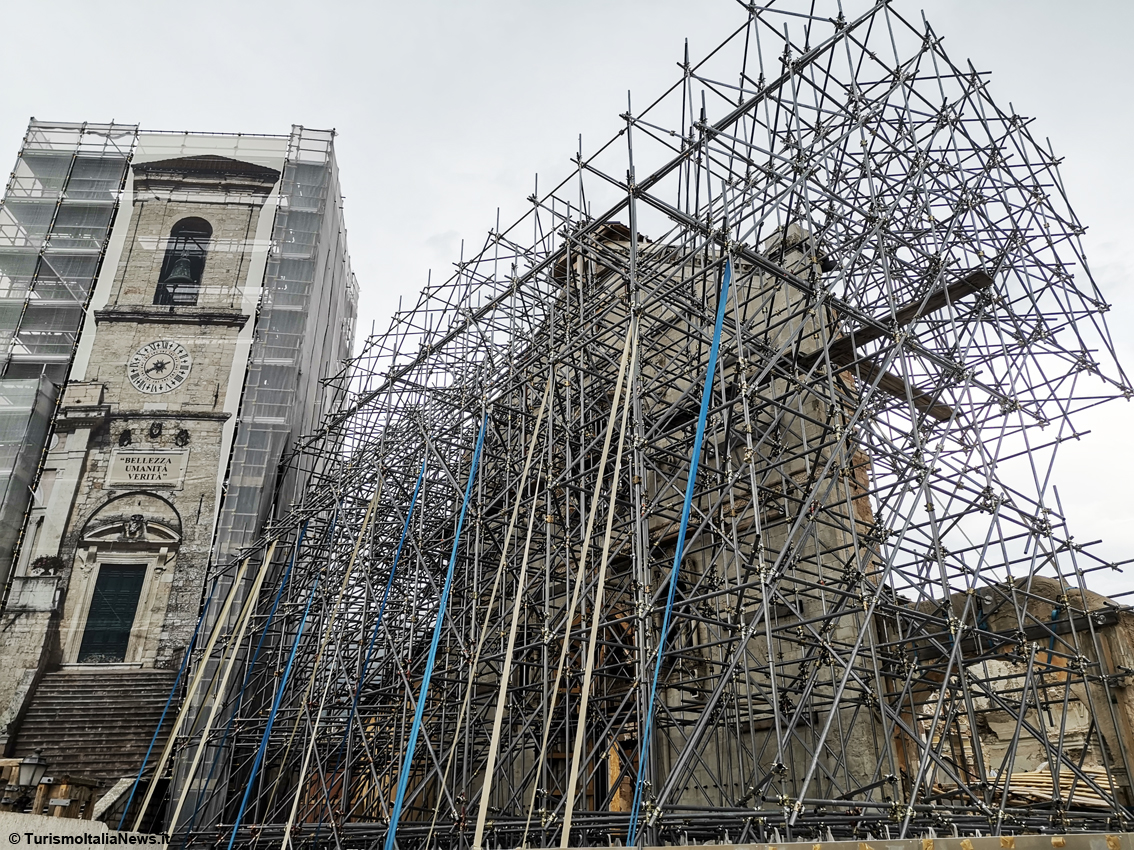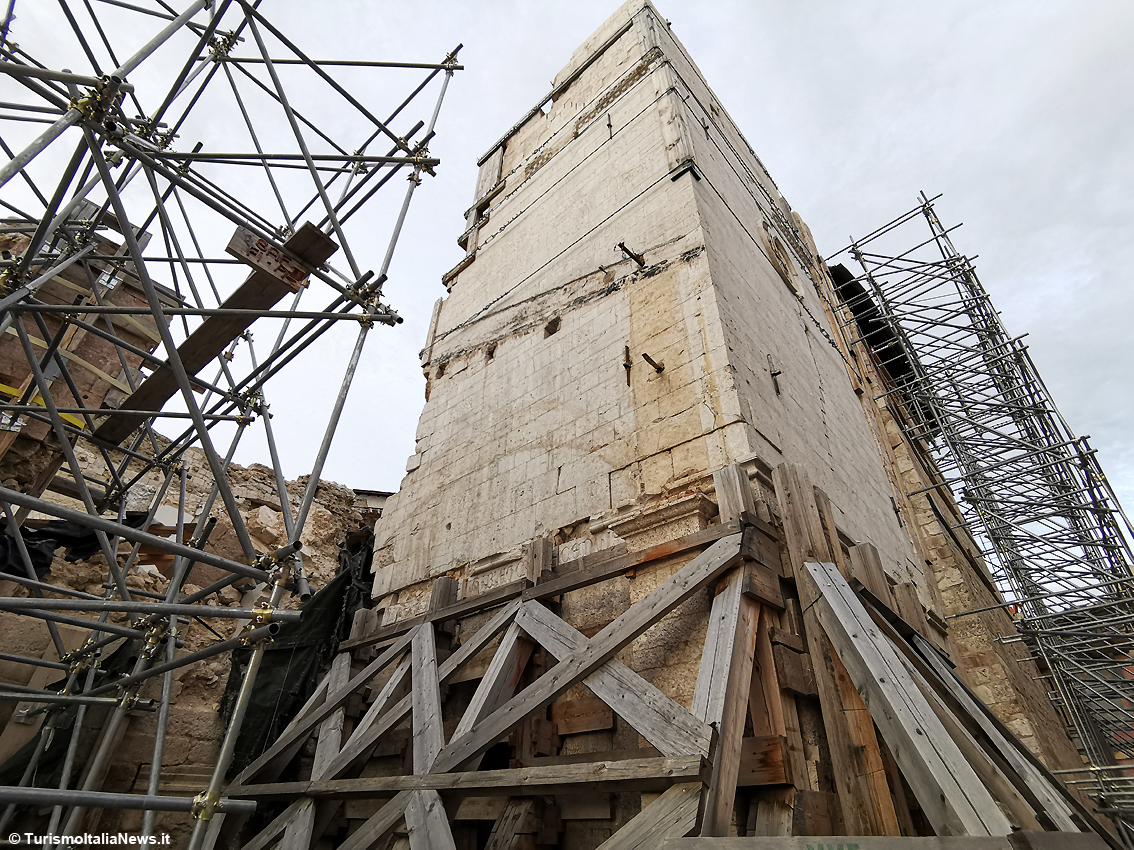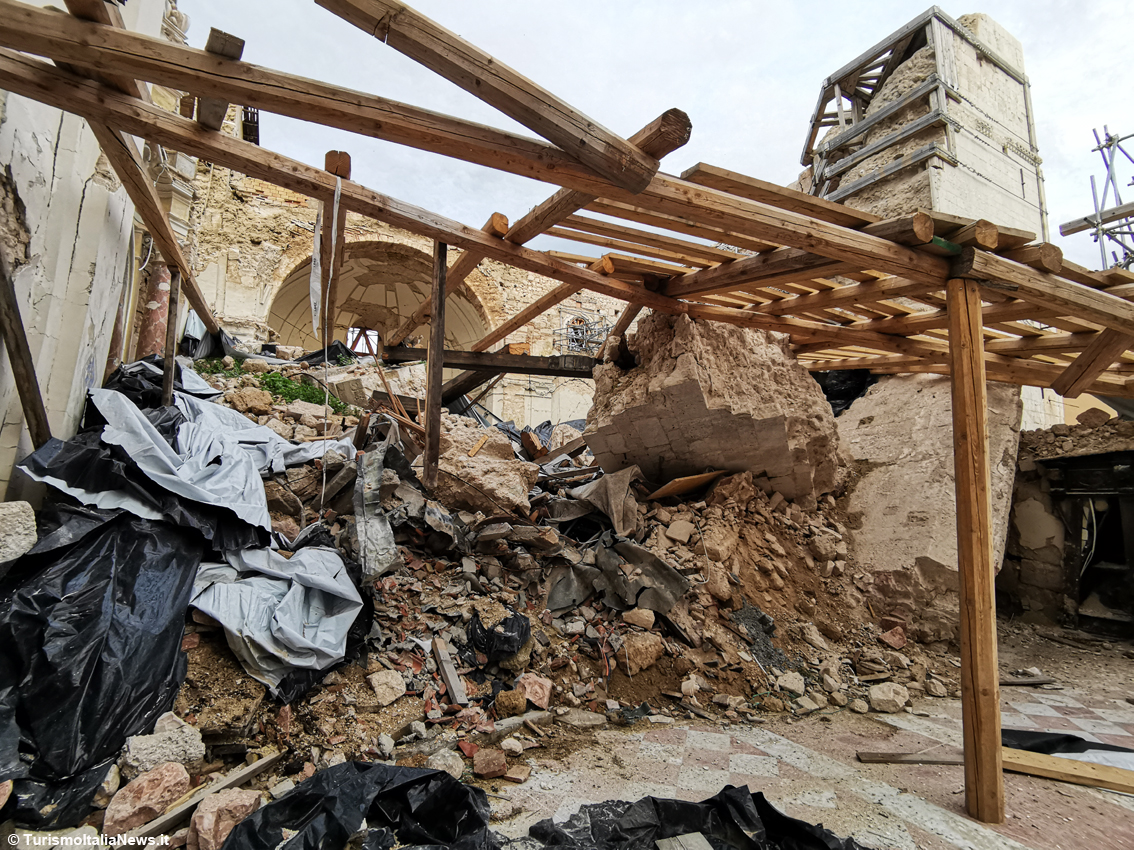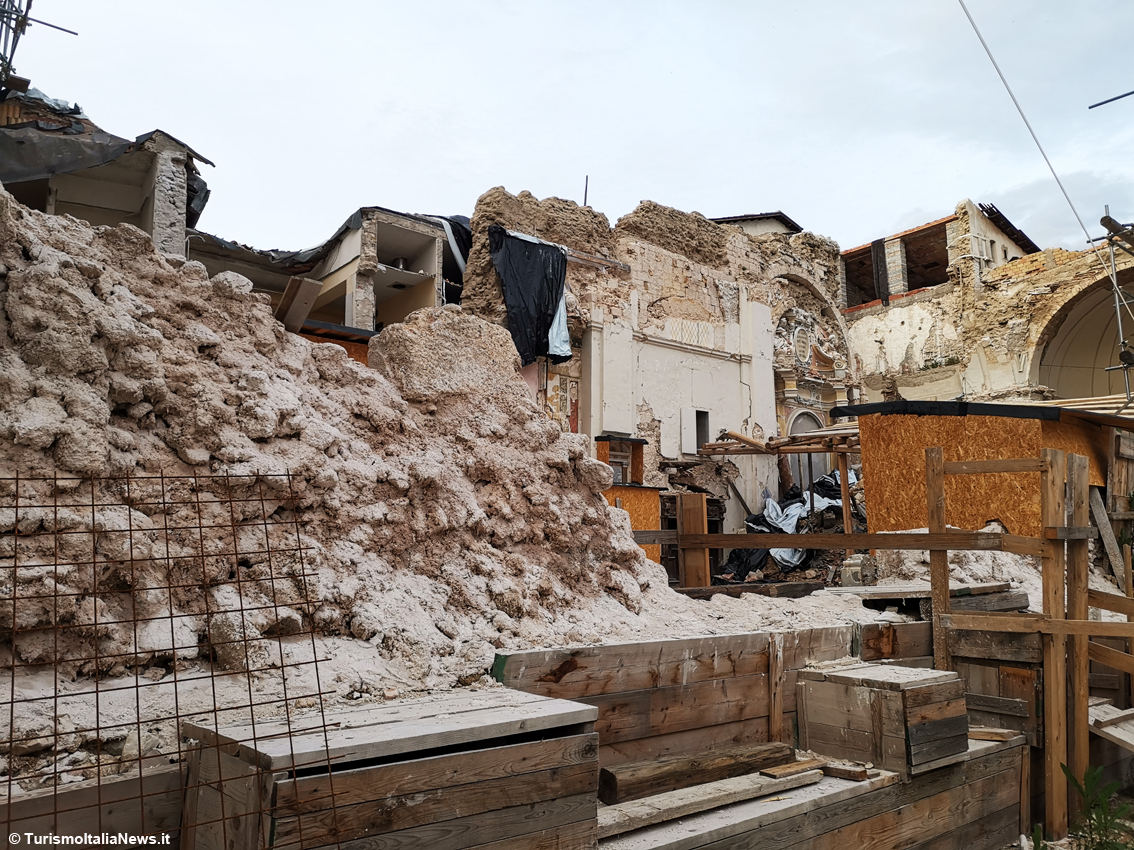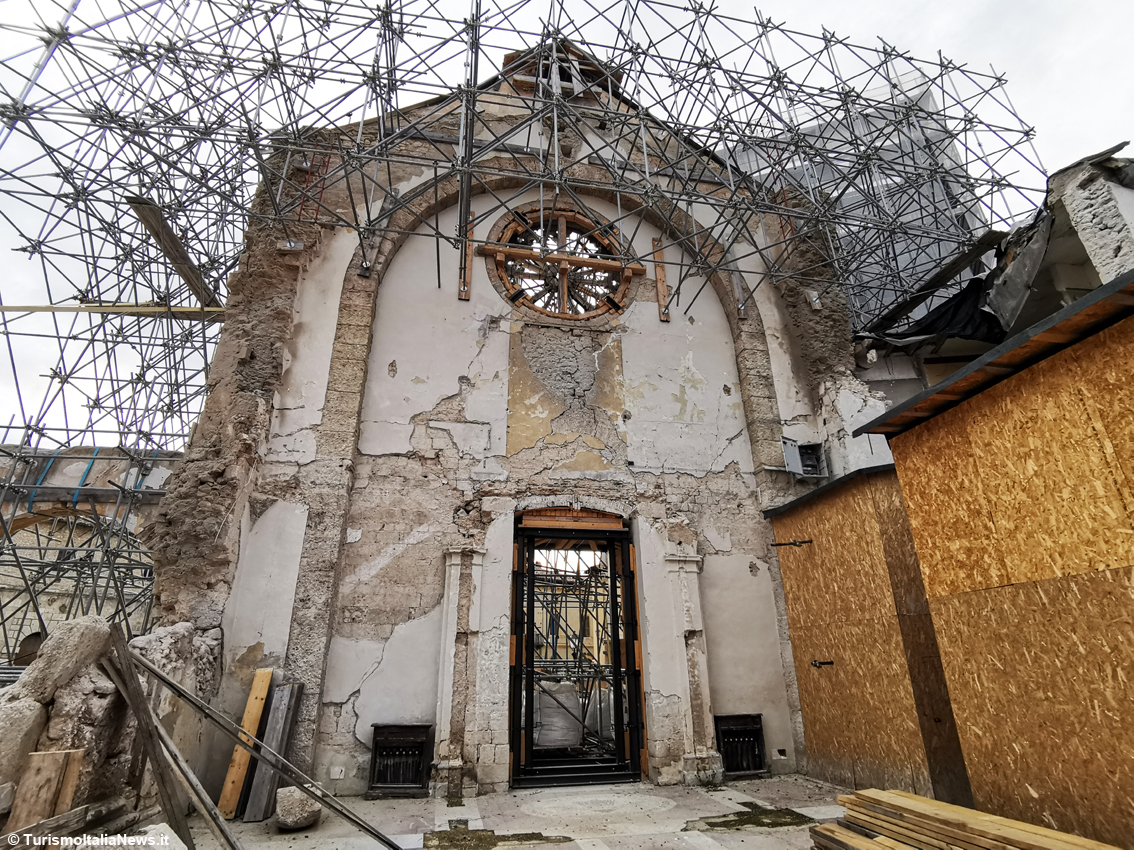ITALY | Norcia: rebirth of stone and faith. The Basilica of Saint Benedict returns, more beautiful and safer than ever
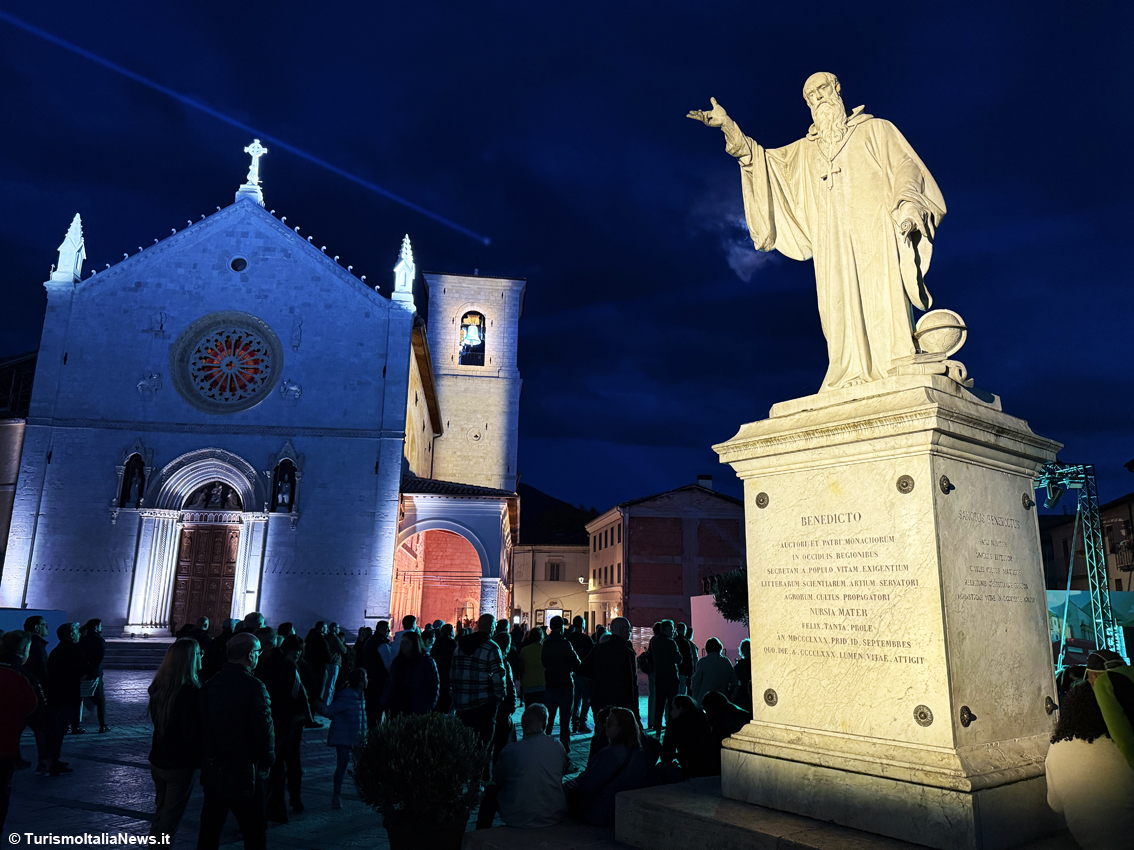
by Giovanni Bosi, Norcia / Umbria / Italy
After nine years of waiting, resilience, and hope, Norcia has found its heart again. The Basilica of Saint Benedict, symbol of an Umbria wounded by the 2016 earthquake, has come back to life — not merely rebuilt, but reborn: stronger, safer, and even more beautiful, enriched with new artistic treasures. On the ruins of one of Europe’s most iconic spiritual landmarks, the community of Norcia has united memory, science, and faith in a true masterpiece of rebirth.
(TurismoItaliaNews) It all began on October 30, 2016, when a 6.5-magnitude earthquake reduced the Basilica to rubble: the bell tower collapsed, the apse crumbled, and the nave was destroyed. Only the façade remained standing, soon becoming a symbol of Central Italy’s pain. Today, after nearly four years of intense restoration work that began on December 16, 2021, that same façade once again welcomes the faithful and visitors into a place of worship that is also a showcase of technological innovation and rediscovered art.
Rebuilding stone by stone, brick by brick
The Basilica’s rebirth has also brought to light artworks hidden for centuries. During the reconstruction, restorers discovered frescoes and paintings of remarkable historical and artistic value. In the left transept, a 15th-century “Madonna Enthroned with Saints Benedict and Gregory”, attributed to a Marchigian artist close to the school of Bartolomeo di Tommaso da Foligno or Pietro Paolo da Montalto; in the sacristy, another beautifully preserved 15th-century fresco; and among the rubble, fragments of Filippo Napoletano’s canvas “Saint Benedict Receiving Totila” (1621) — around 40% recovered and now undergoing restoration.
These rediscovered works, alongside new studies by art historians Alessandro Delpriori and Matteo Mazzalupi, expand Norcia’s cultural heritage, revealing a sacred art where devotion merges with Benedictine symbolism: the city as an ordered cosmos, and the saint’s hand as the divine hand that sustains the world.
Hidden treasures unearthed
The Basilica’s rebirth has also brought to light artworks hidden for centuries. During the reconstruction, restorers discovered frescoes and paintings of remarkable historical and artistic value. In the left transept, a 15th-century “Madonna Enthroned with Saints Benedict and Gregory”, attributed to a Marchigian artist close to the school of Bartolomeo di Tommaso da Foligno or Pietro Paolo da Montalto; in the sacristy, another beautifully preserved 15th-century fresco; and among the rubble, fragments of Filippo Napoletano’s canvas “Saint Benedict Receiving Totila” (1621) — around 40% recovered and now undergoing restoration.
These rediscovered works, alongside new studies by art historians Alessandro Delpriori and Matteo Mazzalupi, expand Norcia’s cultural heritage, revealing a sacred art where devotion merges with Benedictine symbolism: the city as an ordered cosmos, and the saint’s hand as the divine hand that sustains the world.
Innovation and memory: the case of the Town Hall
Next to the Basilica, Norcia’s Palazzo Comunale (Town Hall) has also become a model of architectural innovation. With an investment of almost six million euros, the historic building has been literally cut at its foundations to install state-of-the-art seismic isolators — a groundbreaking engineering experiment, replicable across Italy, marking a new frontier in the protection of cultural heritage in seismic areas. The same “double foundation” system with elastomeric isolators has been applied to the Basilica itself, making it one of the safest churches in Europe from a structural standpoint.
Faith and enterprise: Eni’s role
Eni’s involvement went far beyond technical assistance. The company also supported the artistic and decorative restoration, coordinating a multidisciplinary team of conservators, architects, engineers, and art historians. Their painstaking work revived stuccoes, capitals, friezes, and painted surfaces in accordance with the guidelines of the Superintendency and the Ministry of Culture. Eni has long been involved in major restoration projects in Italy — from Milan’s Cathedral to the Basilica of Collemaggio in L’Aquila — but the work in Norcia holds a special symbolic meaning: here, reconstruction became the metaphor of resilience for an entire community.
The voice of the community and the church
“With the reopening of the Basilica of Saint Benedict, Norcia feels a return to that normality so abruptly interrupted nine years ago,” said Mayor Giuliano Boccanera. “This is a powerful symbol of our city’s social and economic revival”. Italy’s Minister of Culture, Alessandro Giuli, who attended the inauguration, described the event as “a resurrection, a return to life,” praising the Umbrian community as “a model of unity and awareness, capable of overcoming any adversity”. Even Pope Leo XIV, in a message read by Cardinal Pietro Parolin, called the reopening “the tangible sign of a profound spiritual rebirth embracing the faith of the Christian people, starting from the Umbrian lands”.
Norcia: Capital of rebirth
The reconstruction of the Basilica of Saint Benedict, together with that of the Co-Cathedral of Santa Maria Argentea and the Castellina Museum Complex, will soon restore Norcia’s historical and cultural identity. But the new face of Norcia is not merely architectural — it is spiritual, civic, and deeply symbolic. In the name of its “Appennine civitas,” the city has now submitted its candidacy to become European Capital of Culture 2033. Because if, as Saint Benedict taught, “art saves the city,” then today Norcia stands as the most luminous and living proof of that truth.



